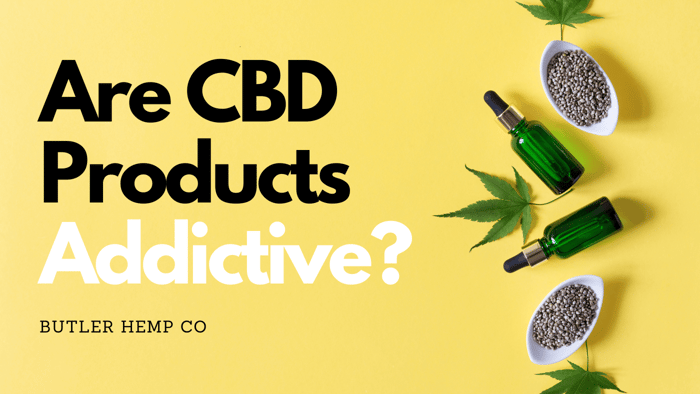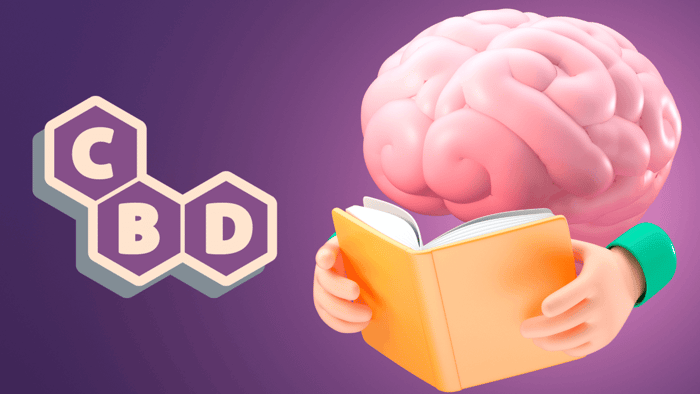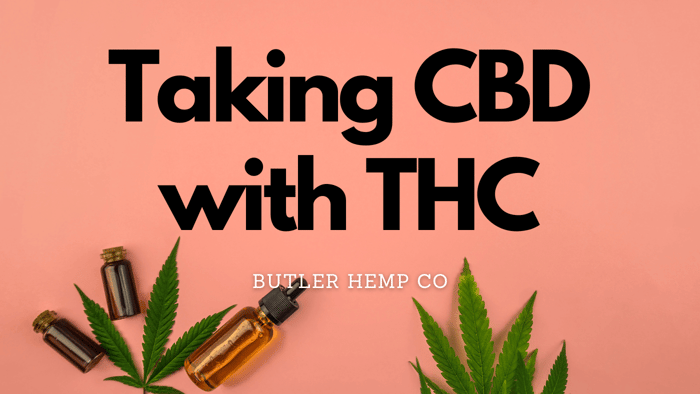In the ever-expanding world of wellness, CBD has carved a niche for itself as a promising natural remedy for a variety of ailments. As the popularity of CBD products continues to soar, questions regarding their addictive potential have become a focal point of discussion. This blog post aims to provide a comprehensive exploration of the key question: Are CBD products addictive? Let's embark on a journey through the science, research, and real-world experiences to unravel the truth behind this pervasive myth.
Understanding CBD: Breaking Down the Basics
To comprehend whether CBD products are addictive, it's crucial to first understand the fundamentals of cannabidiol. CBD is a chemical compound found in the cannabis plant, known for its therapeutic properties without the psychoactive effects commonly associated with its counterpart, THC. CBD interacts with the endocannabinoid system (ECS) in the body, a complex network of receptors responsible for maintaining balance and homeostasis.
CBD vs. THC: A Crucial Distinction
A common source of confusion stems from the association between CBD and THC, the psychoactive compound in cannabis responsible for the "high" sensation. Unlike THC, CBD does not induce intoxication or dependence. The two compounds have distinct effects on the brain's receptors, with CBD steering clear of the pathways that lead to addictive behaviors. This fundamental distinction is vital in dispelling the notion that all cannabis-related compounds share the same addictive traits.
Scientific Insights: CBD's Low Potential for Addiction
To delve deeper into the question of CBD's addictive nature, it's essential to explore scientific research. A landmark review published in the Journal of the Neurosciences and Biobehavioral Reviews in 2015 emphasized that CBD exhibits a low potential for abuse and dependence. This conclusion was drawn from an extensive analysis of existing studies, providing a strong foundation for understanding the compound's interaction with the brain and its propensity for addiction.
Furthermore, the World Health Organization (WHO) released a report in 2018 stating that CBD is generally well-tolerated, with no evidence of public health-related problems associated with its use. These scientific insights collectively contribute to a growing body of evidence supporting the notion that CBD products are not inherently addictive.
CBD and the Endocannabinoid System: A Harmonious Interaction
The key to understanding CBD's non-addictive nature lies in its interaction with the endocannabinoid system. Unlike substances that directly bind to CB1 receptors, such as THC, CBD modulates these receptors indirectly. This nuanced influence helps maintain balance within the ECS without triggering the addictive pathways associated with other compounds. Picture it as a gentle orchestrator of harmony within the body, contributing to overall well-being without the risk of addiction.
Real-World Experiences: Anecdotal Evidence
While scientific studies provide a strong foundation, real-world experiences offer valuable insights into the practical application of CBD. Numerous individuals who have incorporated CBD products into their daily routines report relief from various conditions, including anxiety, chronic pain, and insomnia. Importantly, these users consistently emphasize the absence of addictive behaviors, withdrawal symptoms, or cravings commonly associated with substances with addictive potential.
Navigating Responsible CBD Use: A Call for Informed Choices
While the evidence overwhelmingly supports the non-addictive nature of CBD, responsible use is paramount. Consultation with healthcare professionals is recommended, particularly when integrating CBD into a wellness routine alongside other medications. This cautious approach ensures that individuals can harness the therapeutic benefits of CBD while minimizing potential risks.
Conclusion: Are CBD Products Addictive? Dispelling the Myth and Embracing the Truth
In conclusion, the accumulated evidence strongly suggests that CBD products are not addictive. The compound's unique interaction with the endocannabinoid system, coupled with scientific research and real-world testimonials, stands as a robust testament to its safety. As we navigate the landscape of wellness, understanding the effects and limitations of CBD empowers individuals to make informed decisions about their health. The resounding answer to the question, "Are CBD products addictive?" is a confident no – CBD represents a promising avenue for holistic well-being without the specter of addiction.
If you would like to explore Butler Hemp Co's CBD Product offering follow this link or checkout our featured product below!
$64.99
If you live with pain and anxiety, you don’t have to turn to prescription drugs to find relief. This Extra Strength Full Spectrum CBD tincture works within your endocannabinoid system to restore homeostasis and bring your body back to its… read moreExtra Strength Full Spectrum 3000mg CBD Oil





